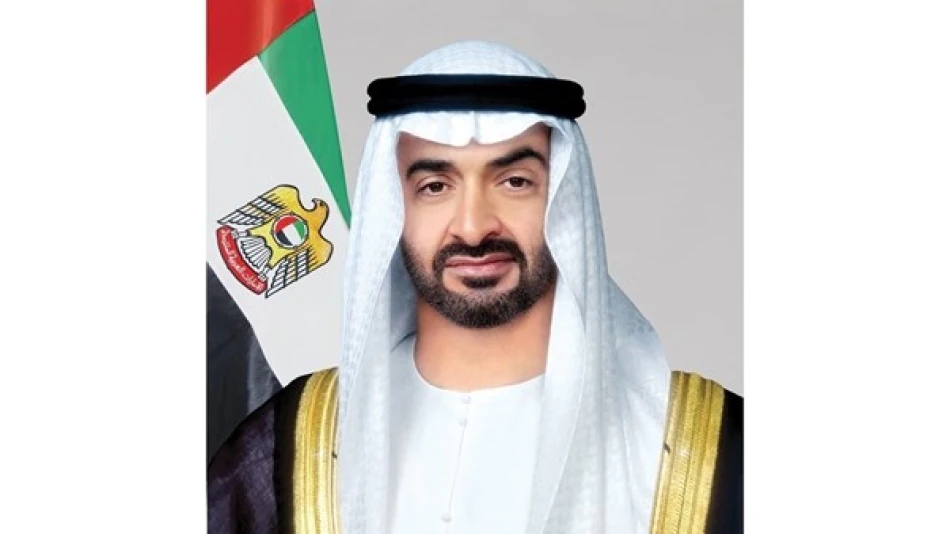
UAE President Visits Azerbaijan in Official State Trip
UAE President's Historic Visit to Karabakh Signals Deepening Gulf-Caucasus Alliance
UAE President Sheikh Mohammed bin Zayed Al Nahyan has arrived in the disputed Karabakh region for an official visit to Azerbaijan, marking a significant diplomatic gesture that underscores the Emirates' expanding influence in the South Caucasus and its strategic alignment with Baku's territorial claims.
High-Level Diplomatic Engagement
Azerbaijani President Ilham Aliyev personally received Sheikh Mohammed bin Zayed at Fuzuli International Airport, demonstrating the importance both nations place on this bilateral relationship. The UAE delegation includes several high-ranking officials, including Sheikh Hamdan bin Mohammed bin Zayed Al Nahyan, Deputy Chief of Staff for Special Affairs, and Sheikh Mohammed bin Hamad bin Tahnoun Al Nahyan, Advisor to the President, alongside various ministers and senior state officials.
Strategic Timing and Location
The choice to meet in Karabakh—rather than Baku—carries profound symbolic weight. This region, reclaimed by Azerbaijan during the 2020 conflict with Armenia, represents a cornerstone of Azerbaijani sovereignty claims. By conducting official business there, the UAE is effectively endorsing Azerbaijan's control over the territory, a move that will likely resonate throughout the region and beyond.
Economic Implications and Investment Opportunities
This visit comes as both nations seek to diversify their energy-dependent economies. Azerbaijan, flush with oil and gas revenues, has been courting Gulf investment for infrastructure projects in the newly accessible Karabakh territories. The UAE, meanwhile, continues its strategy of establishing economic footholds in emerging markets across Central Asia and the Caucasus.
Energy and Infrastructure Synergies
The timing aligns with Azerbaijan's push to rebuild Karabakh's infrastructure, from airports to energy grids. UAE companies have already shown interest in renewable energy projects across the Caucasus, and this high-level diplomatic engagement could unlock significant construction and development contracts in the region's reconstruction phase.
Geopolitical Calculations
This visit reflects the UAE's broader Middle Eastern strategy of building alliances beyond traditional Arab partners. Similar to its normalization with Israel and its pragmatic approach to Iran, the Emirates is positioning itself as a regional power broker willing to engage with diverse partners based on economic and strategic interests rather than purely sectarian or historical ties.
Regional Balance of Power
The UAE's visible support for Azerbaijan's territorial integrity also sends a message to other regional players, particularly Iran and Russia, both of whom have complex relationships with Baku. By strengthening ties with Azerbaijan, the UAE gains another ally in a strategically important region that serves as a bridge between Europe, Asia, and the Middle East.
For investors and policymakers, this diplomatic engagement signals potential opportunities in Azerbaijan's reconstruction efforts while highlighting the UAE's continued expansion of its international partnerships beyond traditional Gulf boundaries. The visit may also indicate forthcoming bilateral agreements in energy, technology, and infrastructure development.
Most Viewed News

 Layla Al Mansoori
Layla Al Mansoori






